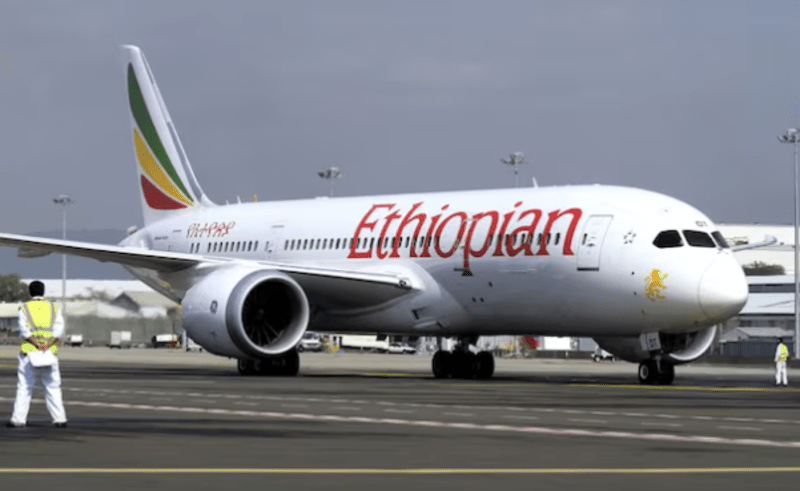NTSA dismisses claims of losing control over TIMS amidst audit concerns

NTSA responded to media reports citing concerns in the Auditor General’s latest audit that the agency’s staff had restricted access to the Sh186 million system.
The National Transport and Safety Authority (NTSA) has dismissed claims that it lacks control over its digital operations, maintaining that the Transport Integrated Management System (TIMS) is fully owned, managed and secured by the Authority.
In a statement on Wednesday, NTSA responded to media reports citing concerns in the Auditor General’s latest audit that the agency’s staff had restricted access to the Sh186 million system despite its central role in vehicle registration, driver licensing and inspection services.
More To Read
- Ngong Road users warned of daily diversions near Junction Mall until December 10
- Auditor General warns Kenya Railways’ Sh569 billion loan default could burden taxpayers
- Audit uncovers Sh13 billion irregularities in Ketraco wayleave payments
- 20 firms fined Sh2.2 billion for failing to remit unclaimed financial assets
- Majority of Kenya’s unclaimed assets under Sh1,000 - Auditor General
- Five family members killed in Murang'a road crash as matatu plunges into River Kiama
“The system is fully owned and controlled by NTSA, with complete intellectual property rights vested in the Authority,” the agency said.
According to the Auditor General’s report for the financial year ending June 2024, NTSA has failed to assume full operational control of TIMS nearly two years after it went live in March 2023, raising accountability questions. The report noted that NTSA departments still lack access to generate or export complete transaction reports necessary for tracking revenue and performance.
“TIMS access rights provided to the Authority user departments did not allow for the generation and export of comprehensive transactional reports for licensing and vehicle registrations,” Auditor General Nancy Gathungu stated.
“NTSA users of the licensing and motor vehicle registration departments have limitations in the current access levels to meet their reporting requirements. The employees can only access and produce highly summarised reports.”
The audit further revealed that despite being integrated with the eCitizen portal, no formal contract had been signed for the adoption of the system, weakening NTSA’s legal and technical grip on its operations.
“The new system was commissioned in March 2023, for which the Authority has no control, as there was no contract for adoption of the system and the system has been migrated to e-citizen,” read the report.
But NTSA maintained that it has invested heavily in information technology infrastructure, including secure servers, cybersecurity protocols, and a Zero Trust Network Architecture to ensure identity-based access and safeguard the platform.
It further clarified that while the system is linked with eCitizen for Single Sign-On, payments and revenue reporting, all core data, workflows and operations remain housed within NTSA’s infrastructure.
“The Authority’s systems are integrated with the eCitizen system for the Single Sign-On (SSO), payment gateway services and revenue reporting, while the workflows, processes and data run on the NTSA infrastructure,” it said.
NTSA also highlighted its use of advanced data analytics for decision making and pledged to continuously train its ICT personnel to meet evolving digital demands.
“The Authority affirms its commitment to proactively maintaining, improving, and securing its systems, while fostering trust among stakeholders and providing high-quality services to the public,” the Authority said.
Gathungu also raised concerns over NTSA’s failure to issue over 572,000 smart driving licences despite receiving nearly the full supply of cards from the contracted supplier.
She revealed that by the end of June 2024, only 1,637,930 smart licences, just 33 per cent of the five million contracted, had been printed, more than seven years after the project began. The initiative was meant to roll out fully within three years.
“Review of the project status as of June 30, 2024, revealed that 1,637,930 or 33 per cent of total contracted cards had been printed since inception, an indication of very low performance,” she said.
The Sh2 billion project, signed in 2017 between NTSA and the National Bank of Kenya, was aimed at supplying, installing, and maintaining smart driving licence cards. The audit noted that while over four million cards had been delivered, most remained unused without a clear explanation for the delay.
The delay has left a large proportion of the estimated five million licensed drivers in Kenya without the smart document, raising fears that many could be driving with invalid papers.
The Auditor General further warned that the government risks revenue loss and accountability failures unless NTSA fully assumes system control and accelerates the rollout of the smart licence programme.
Top Stories Today











































